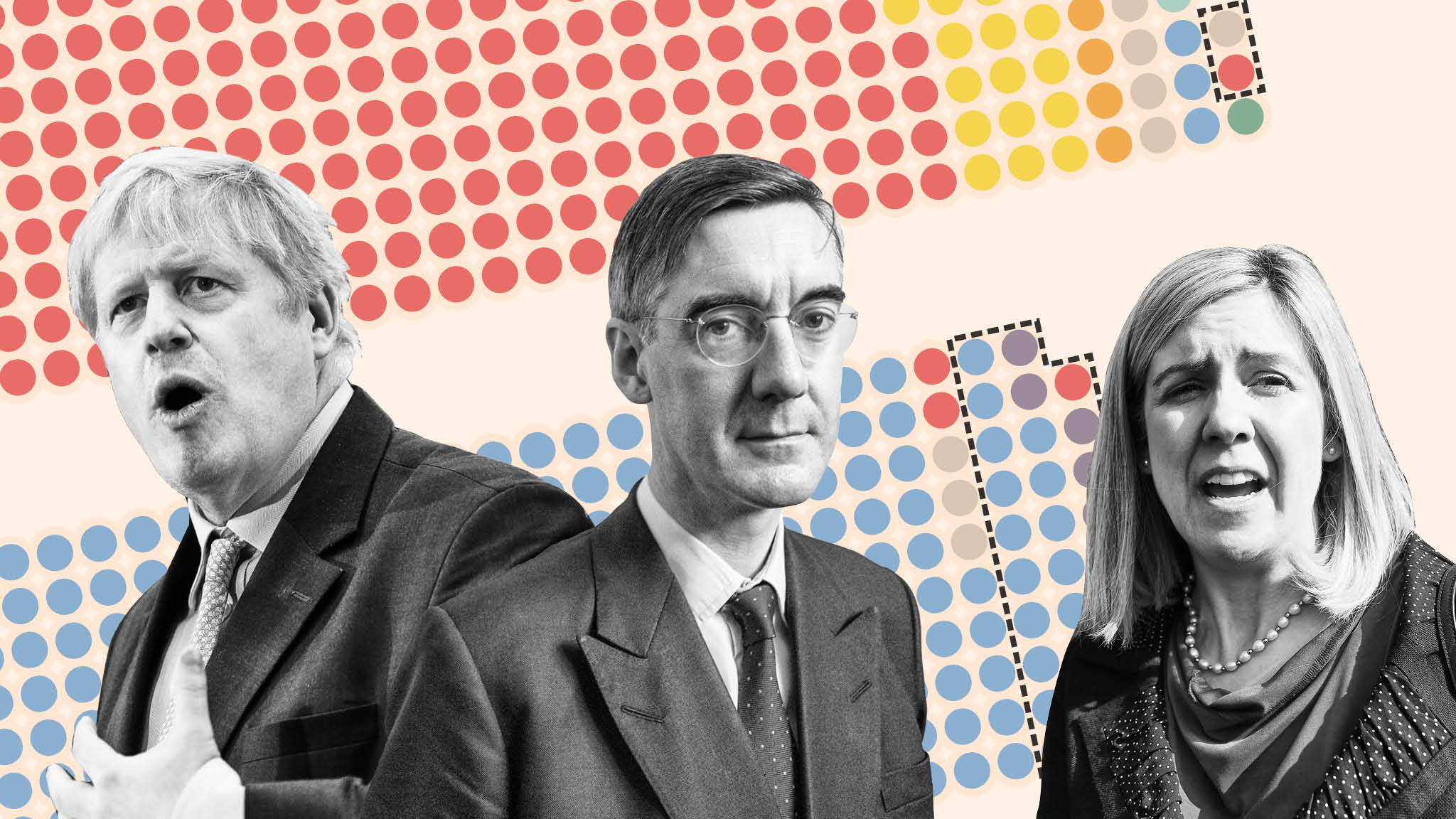What Chibritish Parliment Has Once Again Voted Down Prime Minister Theresa Mays
How MPs voted on May'due south withdrawal deal defeat
Visual analysis: see how your MP voted

Click on to jump down the page to meet a listing of MPs referred to in the story.
Theresa May whittled downwardly the number of Bourgeois MPs prepared to vote against her Brexit bargain on Fri, just she underestimated the intransigence of hard-cadre Eurosceptics in her ain party. The vote saw , with 344 against and four abstaining. This left .
The prime minister was resigned to the fact that at that place would be no formal support for her withdrawal understanding from the Labour party, the Scottish National Party, Plaid Cymru, the Liberal Democrats, the Independent Group (renamed Change UK) or the Green Party.
Merely she had hoped to win round the Democratic Unionist Party, whose 10 MPs have propped upward her government since 2017. Instead they unanimously voted down the deal one time again.
Mrs May's hopes of attracting the support of Labour MPs in Leave-voting constituencies with inducements, such as extra funding and changes to employment law, were too dashed: for the understanding.
The number of Tory rebels has gradually fallen from 115 in the first meaningful vote on her deal in Jan, to 75 in mid-March and 34 on Friday.
The most high-profile in the last fortnight include some Conservative party heavyweights, such as former party leader Iain Duncan Smith, 1-time Brexit secretary Dominic Raab and - in the almost eye-catching U-plough of all - Boris Johnson, who quit as foreign secretary last summer. Jacob Rees-Mogg, chair of the anti-EU European Enquiry Grouping (ERG) as well barbarous behind the deal, albeit with visible reluctance.
Some of these prominent figures have grown increasingly alarmed that at that place could be a long delay to Brexit or that it might not happen at all.
The remaining 34 diehard naysayers - who believe Mrs May's deal leaves United kingdom tied too closely to the EU - were mostly made up of other ERG figures, including Bernard Jenkin, Owen Paterson, Steve Baker and Theresa Villiers. Mr Jenkin said he would rather button for a long extension than endure the prime minister's deal, which gave the European union "callous" command over United kingdom of great britain and northern ireland. Mr Baker said the deal was "finished" at last, and ended: "We must move on."
But at that place were as well half a dozen Europhile Tory MPs who rebelled because they desire a second referendum instead. They include Jo Johnson, Justine Greening, Sam Gyimah, Phillip Lee and Dominic Grieve.
In recent months there have been several dozen Labour MPs in Get out seats - mostly in northern England and the Midlands - agonising nearly whether to dorsum the deal.
However, many of them would simply support the Tory government if they feared that Britain was on the brink of a no-deal Brexit. As a result just five Labour MPs supported the agreement: John Mann, Rosie Cooper, Kevin Barron, Jim Fitzpatrick and Caroline Flint. Another two, Dennis Skinner and Ronnie Campbell, abstained. Some of those who supported the regime are now probable to face a backlash from grassroots campaigners, with the threat of deselection on the horizon.
One reason that more Labour MPs did not fall into line was that a proposed amendment from Gareth Snell, Labour MP for Stoke, pushing for Parliament to have greater control of the next stage of Brexit negotiations, was non selected by the Speaker, John Bercow. That determination removed a potential bridge between Labour MPs and Downing Street.
MV1
— 1st meaningful vote on Jan 29
MV2
— 2d meaningful vote on March 12
Exit deal
— Vote for withdrawal treaty
Filter MPs by vote and party
0 MPs friction match your selection
| MP | Constituency | MV1 | MV2 | Exit deal |
|---|
Sources: House of Commons (divisions); OpenDataNI, Prof Chris Hanretty (constituency plebiscite vote estimates).
* Abstentions exclude seven Sinn Féin MPs, partition tellers, the Speaker and his three deputies. Paul Flynn, who passed away in February 2019, is too excluded.
athertonluder1970.blogspot.com
Source: https://ig.ft.com/brexit-exit-deal-vote/